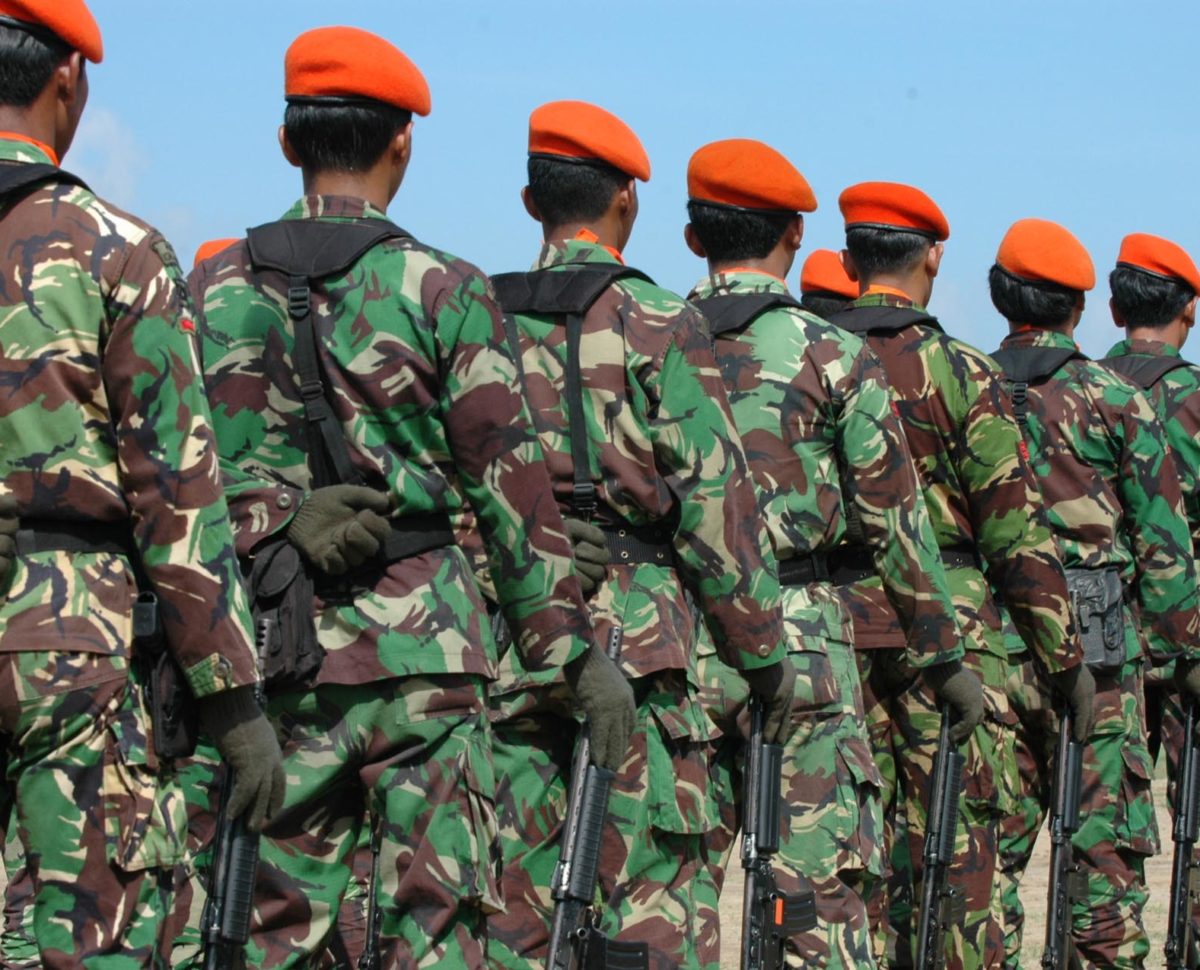
Jan Selby
‘Worried as they are about the financial implications of the loss and damage agenda, Northern states have become much more cautious about attributing specific events and developments to climate change. They worry, on the one hand, that strong ‘climate attribution’ evidence or claims might create extra momentum for the loss and damage agenda. And they worry, more specifically, that studies or claims which establish that individual weather disasters, refugee flows or security crises are partly attributable to climate change may one day leave them financially liable…’
Recent years have seen a great deal of interest amongst researchers, policymakers and activists in the impacts of climate change on what, in the Civil War Paths project and elsewhere, is understood as the pre-war (or ‘onset’) stage of conflict. Yet from the perspective of someone who has long worked on this issue, one of the surprising things about COP26 was the relative dearth of inflated claims about how climate change is already causing or exacerbating wars. In the run up to COP21 in 2015, when the landmark Paris agreement was signed and parties committed to ‘pursuing efforts’ to limiting global warming to 1.5C, there was an avalanche of such claims. The Syrian civil war was widely characterised – by Prince Charles, Barak Obama, Naomi Klein and countless others – as partly caused by a climate change-induced drought, which, so the story went, had driven millions from the Syrian countryside to its cities, in turn fomenting the economic pressures and social tensions which spilled onto the streets in 2011. The rise of Boko Haram in northeast Nigeria and ensuing regional humanitarian and security crises were widely linked to climate change too, especially by the conference’s French hosts and their partners in the Francophone Sahel. And, coinciding as it did with the European ‘migration crisis’, the Paris conference was also accompanied by an upsurge of ‘climate refugee‘ talk – with 2015 being framed as offering but a foretaste of the mass climate-induced displacement to come.
The contrast with COP26 in Glasgow is clear. There was some climate security and climate migration talk, of course. The Biden administration released a series of reports just prior to the conference, including a first national intelligence assessment on climate change and an assessment on climate change and migration. The World Bank released a modelling which suggested that as many as 216 million people may become ‘climate migrants’ by 2050. There were panel sessions on climate security, replete with dubious and intentionally vague causal claims such as that climate change was a ‘precursor‘to the war in Syria. And there were plenty of references to the ‘existential threat‘ posed by climate change, as well as broad-brush characterisations of the conference as ‘make or break‘ for humanity. But overall, there was a marked dialling down of the climate security rhetoric. Political leaders barely sought to establish links to current wars at all. Discussions of climate migration were relatively muted. Illustratively, as part of the run-up to Glasgow the British government commissioned an evidence review of the scientific evidence on climate change and migration – which I co-authored – and were happy to disseminate and publicise this despite the fact that it found little basis for standard climate migration rhetoric. And the Biden administration’s intelligence assessment was noticeably more sophisticated than previous US government climate security assessments, especially in departing, at least in part, from standard Malthusian registers.
Securitising the climate
What should we make of this change? Evaluated in terms of the evidence for it, the dialling down of climate security talk is clearly positive. It has repeatedly been shown, for instance – including in a recent prize-winning book by Marwa Daoudy, and in my own work – that there are no good evidential grounds for concluding that climate change was a factor in the onset of Syria’s civil war. The idea that climate change has caused the decline of Lake Chad and in turn contributed to the rise of Boko Haram is even more baseless, and indeed a function of longstanding colonial myth. And climate shock events, far from simply leading to increased displacement and migration, can also decrease it, by reducing vulnerable peoples’ capacities to migrate. Policy communities have become much more sensitive to the fact that climate security and migration rhetoric has often run ahead of the evidence, and have thankfully become cautious about reproducing this pattern.
The toning down of this rhetoric is also, to my mind, for the most part politically positive. The misplaced securitisation of climate change – as well as climate disaster framings more broadly – can easily legitimise and facilitate militarisation. Misplaced climate attribution can also easily feed what is now widely known as ‘maladaptation‘, adaptation initiatives which do more harm than good. And there is no evidence, so far as I am aware, that the discursive securitisation of climate change has led to the sort of policy actions expected by the Copenhagen School: climate security rhetoric has not obviously precipitated emergency climate action. Instead, climate security talk appears above all to have functioned as an excuse for action – a performative marker of how seriously governments take the issue, even when they are not putting in place funding or policies on anything close to the required scale. For all the inadequacy of COP26 and the agreements reached there, policy discourse on climate change is now much more serious and focused than it was in 2015. At Paris, negotiations centred on the need for a robust global multilateral framework to guide future mitigation efforts. But at Glasgow the negotiations centred on ‘phasing out’ – or, as ultimately agreed, ‘phasing down‘ – coal power, on cutting methane emissions, on keeping the Paris 1.5C goal alive, on agreeing the last bits of the Paris rulebook, and on long-term climate finance for developing states. And with this shift, climate security rhetoric has become much less needed.

‘Loss and damage’
And yet, there has also been something else at work. For, as international climate negotiations have become more, if still inadequately, focused, so issues relating to ‘loss and damage’ have also become more acute, most crucially the question of whether those Northern states which are most responsible for climate change will have to pay reparations to their victims in the global South. ‘Loss and damage’ has, since Paris, formally been the ‘third pillar‘ of international climate policy, and in the run-up to Glasgow and at the conference itself, there was strong pressure, especially from small island states and Bangladesh, for this principle to be given concrete form through the establishment of a dedicated loss and damage facility. That this pressure was rebuffed does not need detailing here, except to say that it clearly reflects the balance of power in international climate negotiations. Instead, the point that I want to make is this: that, worried as they are about the financial implications of the loss and damage agenda, Northern states have become much more cautious about attributing specific events and developments to climate change. They worry, on the one hand, that strong ‘climate attribution‘ evidence or claims might create extra momentum for the loss and damage agenda. And they worry, more specifically, that studies or claims which establish that individual weather disasters, refugee flows or security crises are partly attributable to climate change may one day leave them financially liable. Far safer, for Northern governments, to make broad-brush claims about the potential future security impacts of climate change, than to make pronouncements about actual and historical impacts which may at some future point be used against them.
I have always felt a bit uncomfortable about devoting a large portion of my limited research time to refuting overblown climate security claims – if only because this has sometimes placed me at odds with certain fellow red-green scholars and activists, and has been viewed by some as providing ammunition for climate denialism. My personal reasoning has been that doing such research is politically valuable nonetheless – because of the dangers of climate militarisation, because of how misplaced climate attribution narratives can be used to obscure the much more direct socio-ecological causes of crisis and injustice, and because, fundamentally, I believe in the importance of scientific evidence. But if the loss and damage agenda develops further, this judgement may need revisiting. Do I really want to be doing research, I will need to ask myself, which may at some future point be instrumentalised by those rich Northern states most responsible for global heating, to help them obstruct calls for reparations to their African, Asian and Latin American victims?

